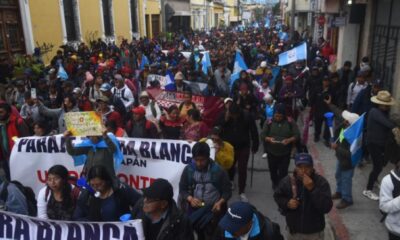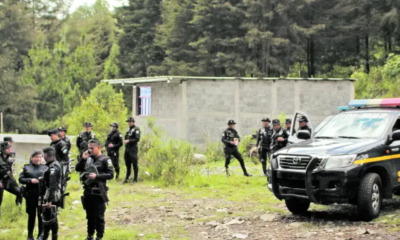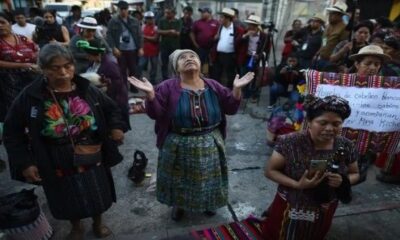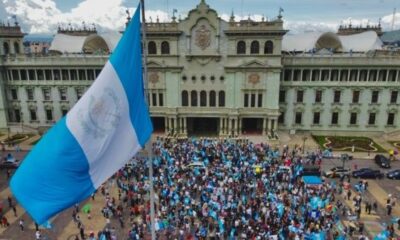Central America
Guatemala’s anti-corruption commissioner, Santiago Palomo, says that the State is in a “critical” condition
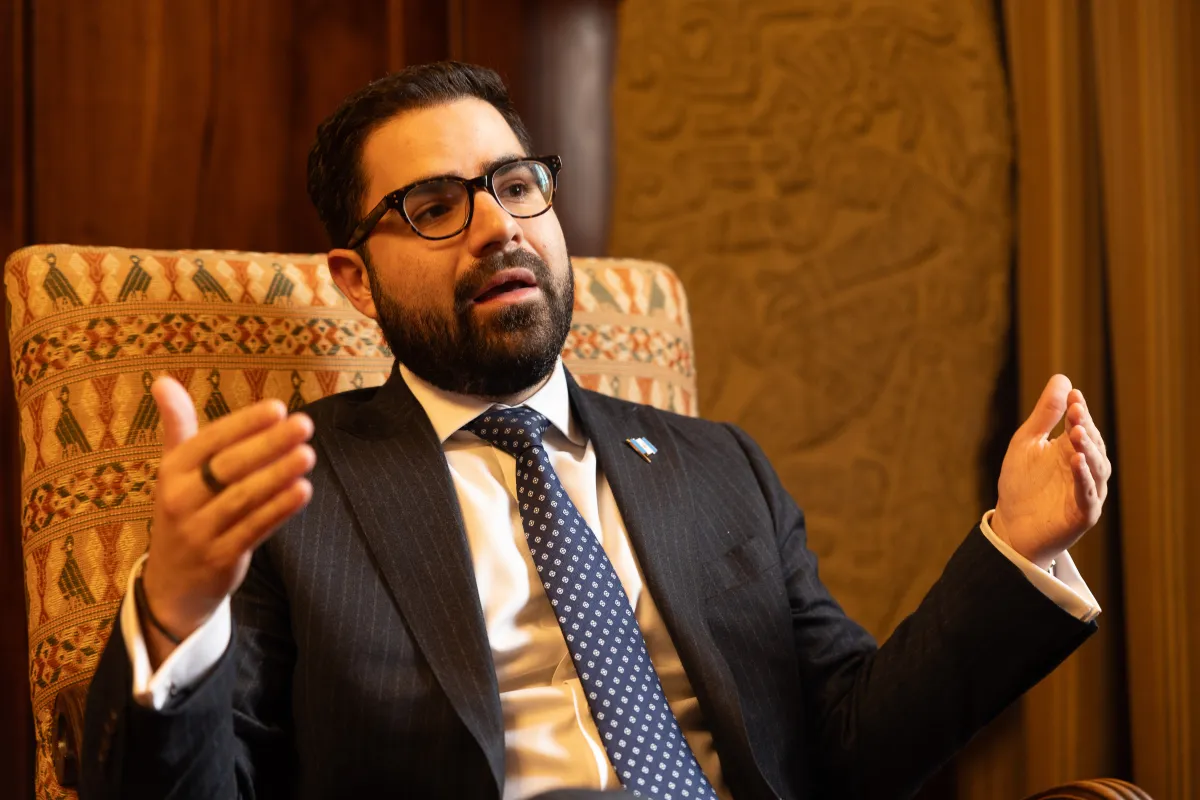
The anti-corruption commissioner of the Government of Guatemala, Santiago Palomo, assures that the first months in office have been “a roller coaster” after having found a State “in critical conditions” in the face of the indications that between 2 billion and 3 billion dollars were embezzled during the presidency of Alejandro Giammattei (2020-2024).
Palomo, a 29-year-old lawyer graduated from Harvard University (USA), said during an interview with EFE that his first months in the position, appointed by the president, Bernardo Arévalo de León, have been “intense” and comparable to “a roller coaster.”
“We are trying to navigate in an Executive body that we receive in critical conditions. We identify a pattern when chatting with the new ministers and secretaries: they describe it as a dead rat in each drawer that is opened. This is how the conditions in which the Government was assumed are defined,” Palomo explains.
According to experts cited by local and international media, the Government of Giammattei could have embezzled up to 3 billion dollars between 2020 and 2024.
Precisely the Corruption Perception Index of 2023 placed Guatemala in 2023 among the five countries with the most embezzlement of state funds. Only behind Haiti, Nicaragua, Venezuela and Honduras.
Commissioner Palomo says that the corruption found operated under the same pattern. “Relevant financial disbursements from 70% to 90%” for the construction of “public works that are being thrown away, such as schools and roads, whose progress does not exceed 30% or 40%.”
According to the official, “this is how these corruption structures worked in the State, right now they are still trying to operate,” the official remarked.
The Government of Arévalo de León denounced Amelia Flores, former Minister of Health of Giammattei, before the courts of justice on April 4, for anomalies in the purchase of 16 million doses of the Russian Sputnik vaccine, in 2021 for a total amount of 615 million quetzals (79 million dollars).
According to various sources, many of the vaccines never reached the Central American country and others expired before their application.
“The case of vaccines shows that they were willing to pursue their own interests to the detriment of the most sacred thing, which was the health of the population, in the midst of a pandemic. It is a case that reflects how unscrupulous the degree of corruption of the previous Administration became,” says Palomo.
Last week Palomo, along with the Minister of Communications, Jazmín de la Vega, denounced two former officials for a possible fraud in the assignment of contracts to a company for the construction of 14 schools for an amount between 45 and 60 million quetzals (between five and seven million dollars approximately).
The anti-corruption tsar explains that it is up to the Executive Body to detect and prevent cases of corruption from occurring in its Administration. But that is the Public Ministry (Attorney’s Office) that “is responsible for investigating and prosecuting.”
“The Prosecutor’s Office does not have a real commitment to investigate serious cases of corruption,” it is not an ally in the fight against corruption,” which becomes a real challenge, Palomo recognizes, although, he said, the Administration of Arévalo does not intend to stop denouncing the anomalies that are found in the various ministries.
In 2023, the Prosecutor’s Office, led by Consuelo Porras Argueta, tried to stop the electoral victory of Arévalo de León in the general elections through various criminal cases and dozens of governments around the world sanctioned his action, including that of the United States and members of the European Union.
Arévalo de León surprisingly prevailed over the traditional politics of Guatemala thanks to his offer to heal the corruption of the State that has caused a significant democratic deterioration in the last 30 years.
Palomo concludes that assuming the anti-corruption arm of this Government for the next four years is “a great responsibility.” An “opportunity to improve the dignity of the public service.”
Central America
Panama grants Martinelli 72-hour extension to travel to Nicaragua
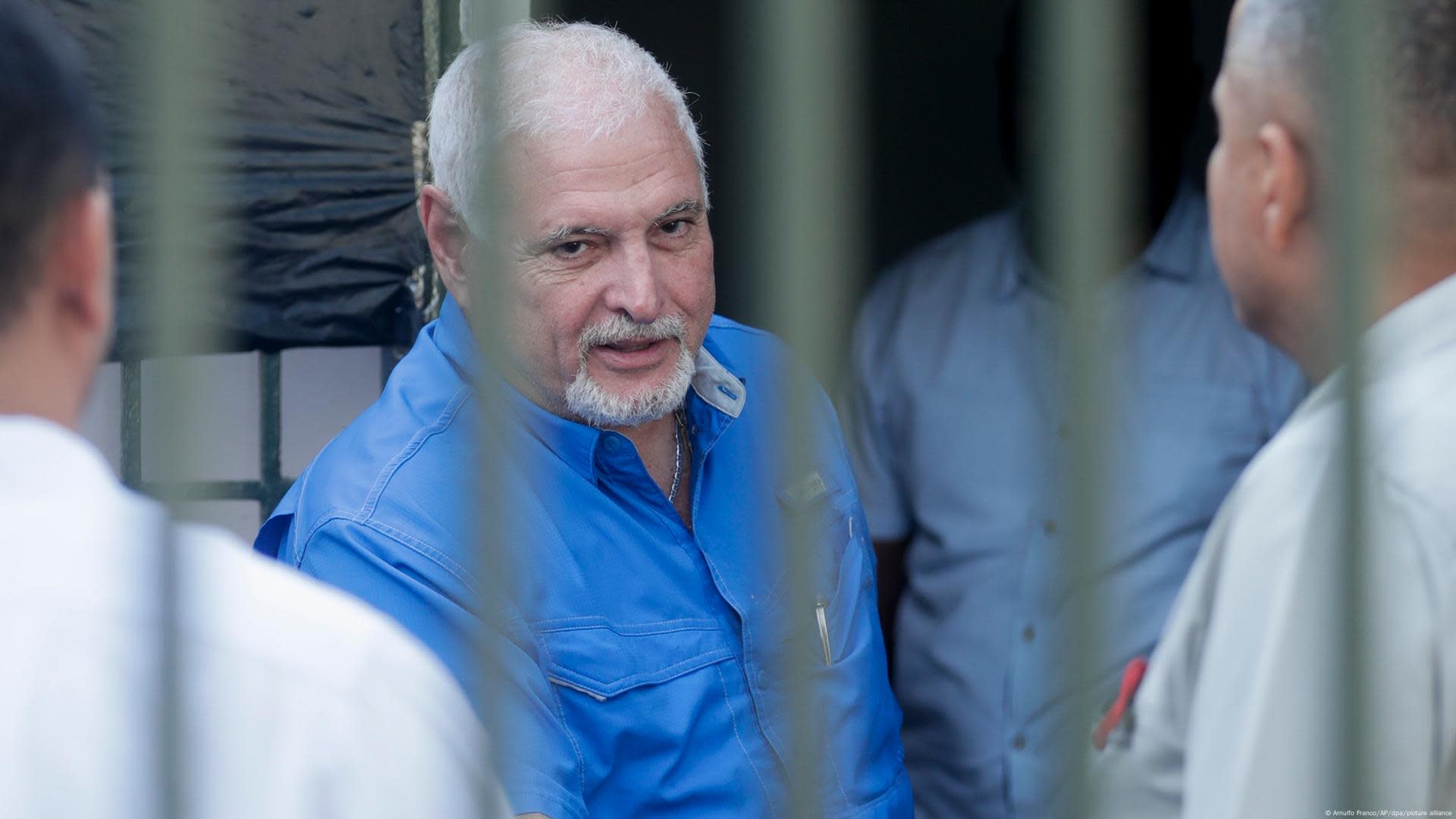
On Monday (March 31, 2025), Panama extended the safe-conduct pass for former President Ricardo Martinelli by three more days to allow him to travel to Nicaragua, after the Central American country refused to receive him due to concerns over an alleged Interpol arrest warrant.
“The National Government has decided to extend the validity of the safe-conduct pass for an additional seventy-two (72) hours, until the end of Thursday, April 3, 2025,” the Panamanian Foreign Ministry stated in a communiqué. The original permit was set to expire Monday at midnight (05:00 GMT on Tuesday).
The Foreign Ministry explained that regarding the ‘humanitarian asylum’ granted to Martinelli last Thursday, which was set to expire Monday at midnight, the Nicaraguan government requested clarifications about an apparent Interpol alert, which had already been dismissed as inadmissible.
Additionally, the Panamanian Supreme Court of Justice, as the highest authority of the Judicial Branch, stated on Monday that it had “no objections” to granting asylum and a safe-conduct to Martinelli, as it falls under the jurisdiction of the Executive Branch.
Central America
U.S. Homeland Security Secretary urges Mexico to strengthen Guatemala border
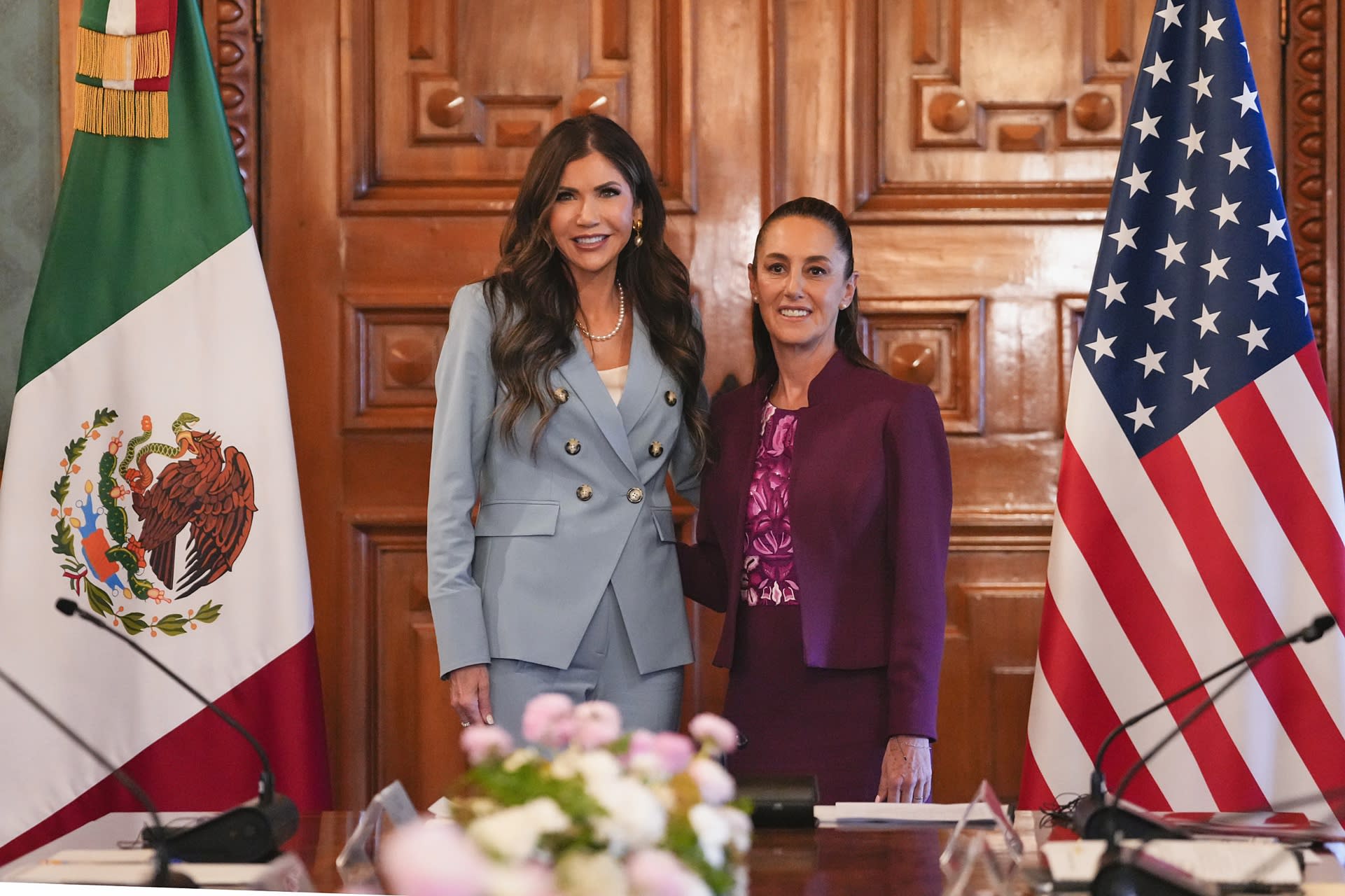
U.S. Homeland Security Secretary Kristi Noem revealed on Monday that during last week’s meeting with Mexican President Claudia Sheinbaum, she urged Mexico to reinforce its border with Guatemala and share biometric datawith U.S. authorities.
“I gave her a list of things that President Trump would love to see. And it was exceptional. It was supposed to be a half-hour meeting, but we talked for nearly two hours. It was very productive,” Noem said in an interview with Fox News.
The Homeland Security Secretary requested that Sheinbaum, who has already deployed 10,000 National Guard troopsalong Mexico’s northern border with the U.S., also secure Mexico’s southern border with Guatemala.
Noem added that she also asked the Mexican president to share biometric data with the U.S., to which Sheinbaum responded that she was “willing to discuss it,” although she acknowledged that it could be a controversial issue in her country.
Central America
Panama police clarifies that Interpol alert for Martinelli is still pending
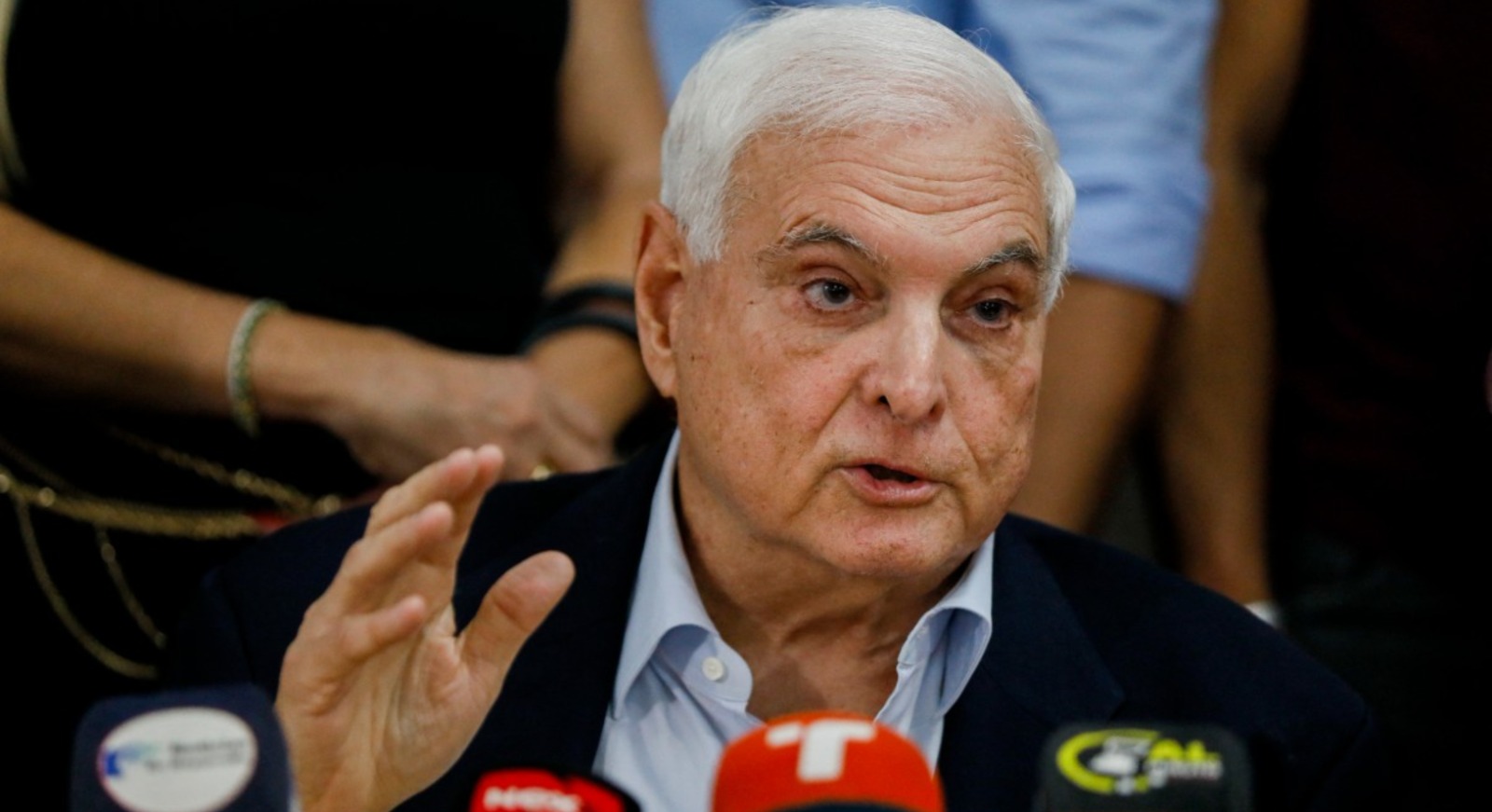
Panama’s National Police clarified on Sunday that an Interpol alert request for former President Ricardo Martinelli (2009-2014) is still under review and has yet to be confirmed. Martinelli was granted a safe-conduct pass last Thursday to leave the Nicaraguan embassy, where he has been seeking asylum since February 2024 after being convicted of corruption.
“The National Police clarifies that there is currently an active process for an Interpol alert, requested by Judge Baloisa Marquínez, against former President Ricardo Martinelli. This request must be analyzed by Interpol’s General Secretariat (headquartered in France) for approval or rejection. If approved, it will be notified to member countries,” the police stated in a press release sent to EFE.
According to the statement, “at the moment, it remains an ongoing procedure, and former President Martinelli does not have a confirmed alert.”
The announcement came hours after National Police Director Jaime Fernández had told the press that an “Interpol alert” for Martinelli had been received on Friday.
-

 Central America5 days ago
Central America5 days agoNicaragua denounces Costa Rica’s position in SICA as aligned with foreign interests
-

 Central America5 days ago
Central America5 days agoNicaragua’s new judicial law consolidates power in Ortega and Murillo’s hands
-
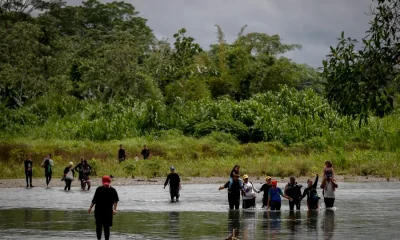
 Central America5 days ago
Central America5 days agoPanama’s president declares Darién gap ‘closed’ amid sharp drop in migrant flow
-

 International3 days ago
International3 days agoSon of journalist José Rubén Zamora condemns father’s return to prison as “illegal”
-

 International5 days ago
International5 days agoMarco Rubio warns Venezuela against military action against Guyana
-

 International3 days ago
International3 days agoMiyazaki’s style goes viral with AI but at what cost?
-

 Central America2 days ago
Central America2 days agoPanama police clarifies that Interpol alert for Martinelli is still pending
-

 International2 days ago
International2 days agoDeportation flight lands in Venezuela; government denies criminal gang links
-

 Central America15 hours ago
Central America15 hours agoU.S. Homeland Security Secretary urges Mexico to strengthen Guatemala border
-

 International15 hours ago
International15 hours agoTrump urges Putin to reach peace deal
-

 Central America15 hours ago
Central America15 hours agoPanama grants Martinelli 72-hour extension to travel to Nicaragua
-
Central America4 days ago
Nicaragua revokes legal status of 10 more NGOs, bringing total to over 5,600


































































